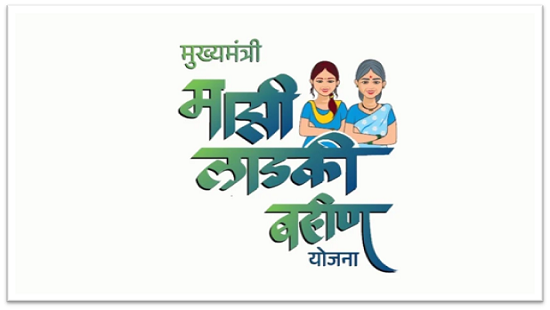
Maharashtra’s Big Relief Move for Women, e-KYC Deadline for Majhi Ladki Bahin Scheme Extended After Widespread Hardship
Maharashtra has announced a major relief measure for thousands of women beneficiaries by extending the e-KYC deadline for the Majhi Ladki Bahin scheme to December 31, 2025. The decision, led by Women and Child Development Minister Aditi Tatkare, reflects the government’s recognition of the severe challenges women have faced in recent weeks following natural disasters across several districts. With this extension, the state has signalled its intent to ensure that no eligible woman loses access to crucial financial benefits due to circumstances beyond her control.
The Majhi Ladki Bahin scheme, designed to offer financial support and social security to women, has a large beneficiary base across both urban and rural regions. Timely completion of e-KYC is essential for the continuation of benefits, making this extension particularly significant at a time when many families are dealing with displacement, communication barriers and loss of essential documents.
A Necessary Extension Driven by Ground Realities
The government’s earlier deadline of November 18, 2025, had become challenging for many recipients after recent natural calamities left thousands of households struggling with damage, disrupted communication networks and difficulties in accessing documentation. Recognizing the scale of hardship, Minister Aditi Tatkare announced a six-week extension, shifting the final e-KYC date to December 31, 2025.
The decision was taken following consultations with Chief Minister Devendra Fadnavis and Deputy Chief Ministers Eknath Shinde and Ajit Pawar. Their directive was clear: no eligible woman should be denied her rightful benefits due to unavoidable circumstances. Such an instruction highlights a governance approach that is both sensitive and responsive, prioritizing people’s needs during emergencies.
Addressing Critical Barriers Faced by Women
The extension also reflects the unique complications that several women encountered, particularly in cases linked to Aadhaar-based verification. For many women, the OTP required for e-KYC was sent to the mobile number registered under their husband’s or father’s Aadhaar information. When these family members had either passed away or were unavailable due to disaster-related displacement, women were unable to access the OTP and complete the verification process.
This issue was especially prevalent in districts affected by floods and landslides, where families lost documents, phones, SIM cards and in some cases, their primary earning members. The government’s decision aims to bridge this gap, ensuring that the structural requirements of Aadhaar verification do not inadvertently exclude deserving beneficiaries.
Special Provisions for Widows and Divorced Women
To ensure fairness and accessibility, the government has introduced alternative verification options for women facing exceptional circumstances. Widows, divorced women and women whose fathers or husbands are deceased can now complete their e-KYC by submitting legitimate supporting documents such as death certificates, divorce decrees or court orders.
This measure acknowledges the administrative barriers that women from vulnerable households often face. It is also an important step toward simplifying bureaucratic processes for categories of women who are already at higher risk of financial insecurity. By permitting alternative documentation, the government has strengthened the scheme’s inclusiveness and reduced friction for beneficiaries navigating complex life situations.
Reinforcing the State’s Commitment to Women’s Welfare
The Majhi Ladki Bahin scheme has been one of Maharashtra’s flagship social welfare programmes, backed by a strong policy emphasis on women’s empowerment. Extending the deadline further reinforces the government’s commitment to social protection, particularly during periods of crisis.
Minister Tatkare highlighted that the government is intent on ensuring justice, equality and uninterrupted access to financial support for every eligible woman. She urged beneficiaries to complete the process within the extended timeline so that payments and scheme benefits can continue smoothly. Her appeal reflects an understanding that while the government is stepping in with flexibility, the responsibility of timely compliance still rests with citizens once immediate challenges are addressed.
A Wider Message for Social Governance in Maharashtra
Beyond the immediate extension, the decision illustrates a broader shift in Maharashtra’s welfare strategy. Increasingly, the state is adopting a people-first approach that adjusts procedural requirements based on real-time challenges faced by citizens. Whether it involves extending deadlines, simplifying documentation or incorporating alternative verification methods, such interventions strengthen trust between the government and the public.
This is particularly relevant in schemes targeted at women, who often face additional layers of administrative difficulty due to documentation dependencies, household hierarchies and economic constraints. By easing these barriers, the state is helping more women access the benefits they are entitled to, thereby enhancing economic inclusion and social resilience.
The Road Ahead, Ensuring Smooth Access for All Beneficiaries
As the December 31 deadline approaches, government departments are expected to increase their outreach efforts, especially in disaster-affected districts. Local officials, anganwadi workers, women’s groups and district-level teams will likely play an essential role in helping women complete their e-KYC.
For many beneficiaries, this extension provides much-needed breathing room to recover from losses, gather documents and complete the verification process without fear of losing financial support. The decision also sets the stage for improved disaster-responsive policymaking, demonstrating how governance can adapt to people’s circumstances when required.
With the extended deadline in place, the focus now shifts to enabling every eligible woman to complete her e-KYC smoothly, ensuring that the Majhi Ladki Bahin scheme continues to function as a reliable pillar of support for women across Maharashtra.




